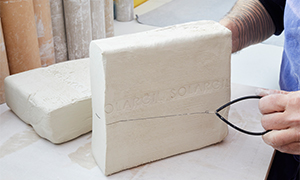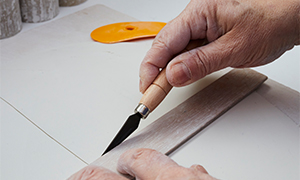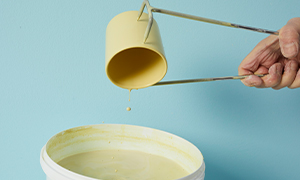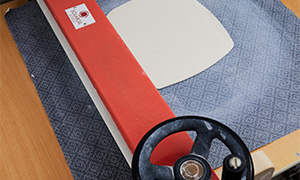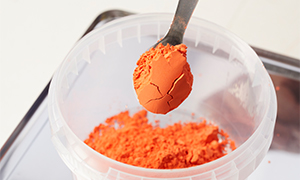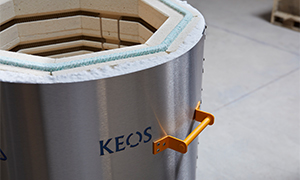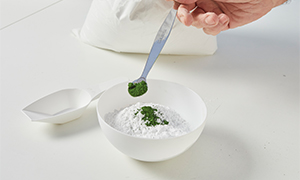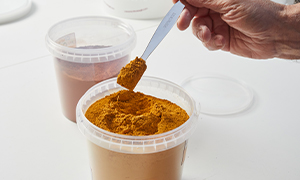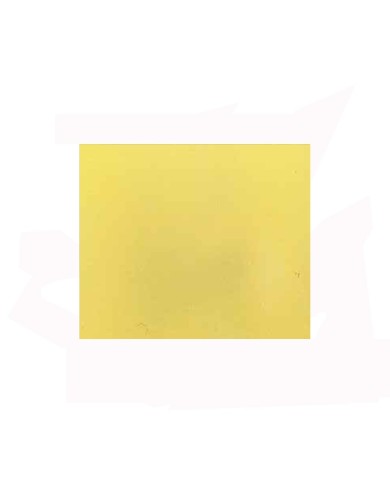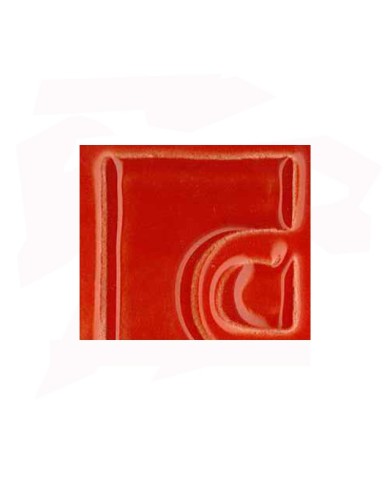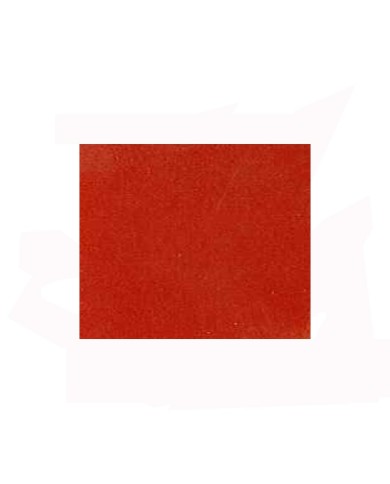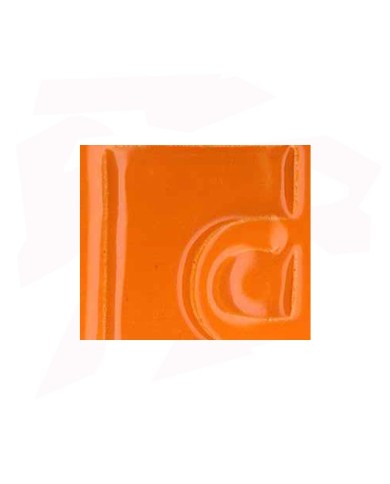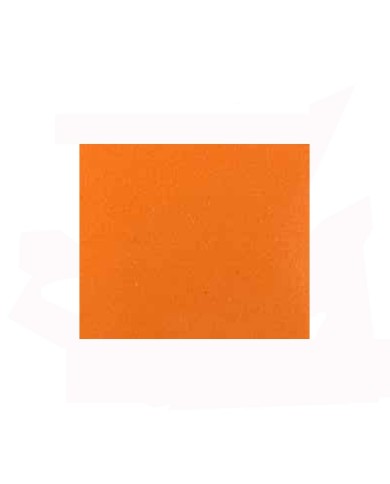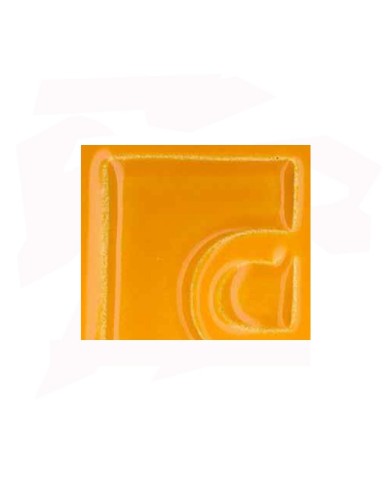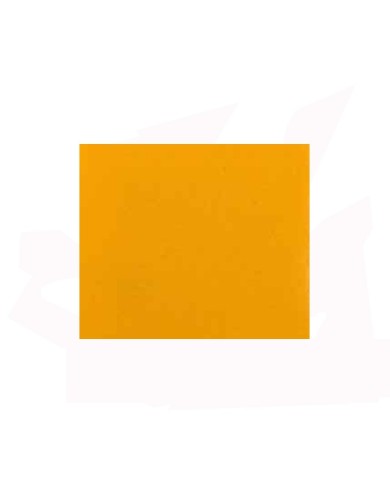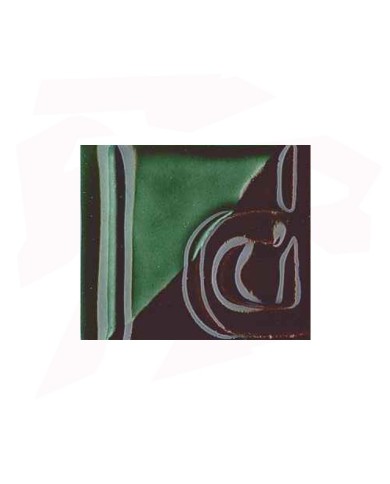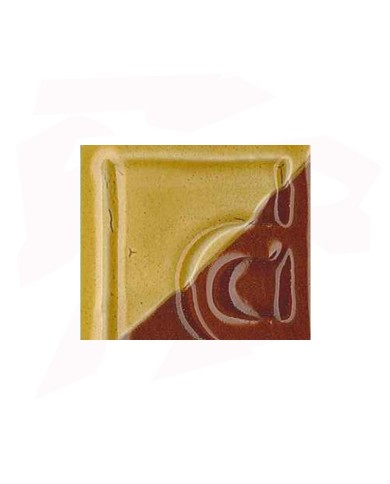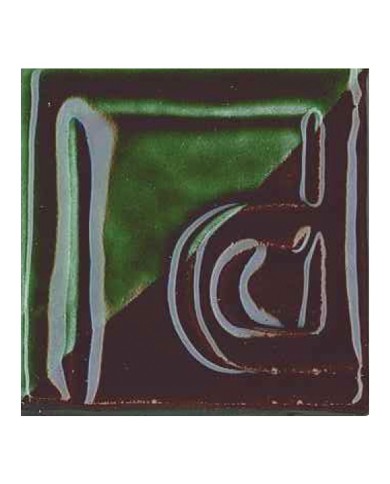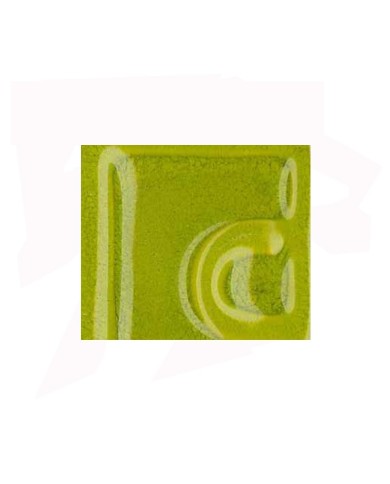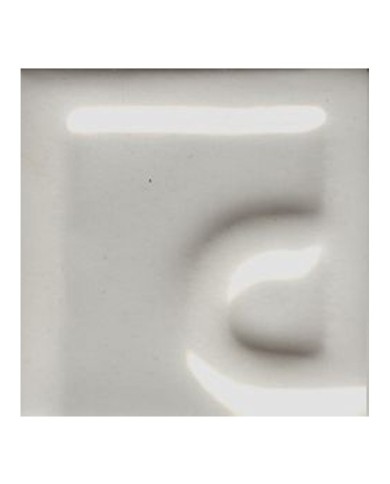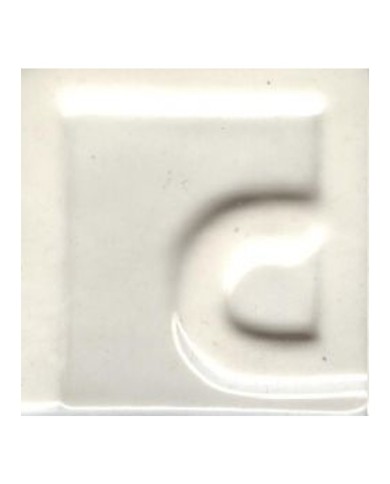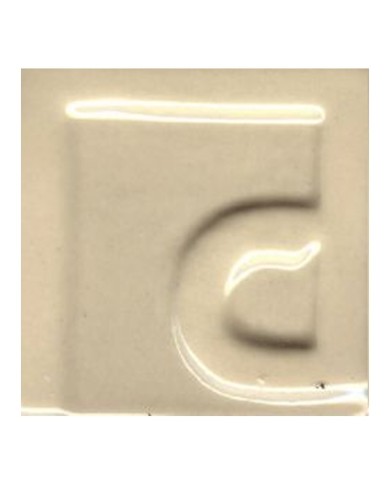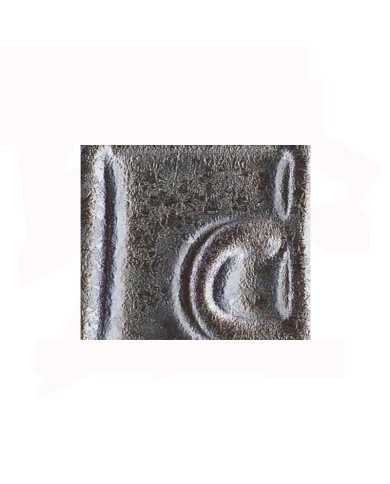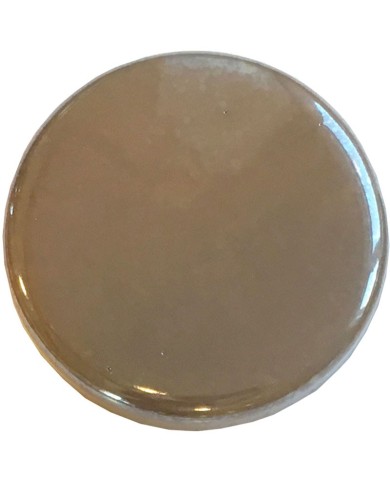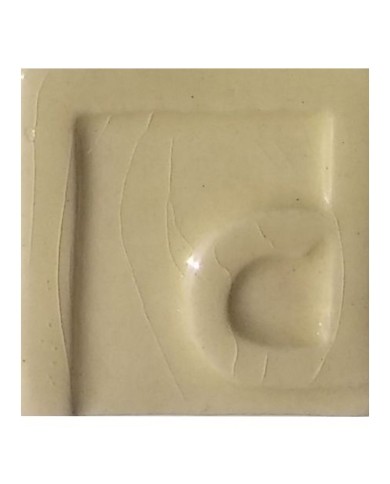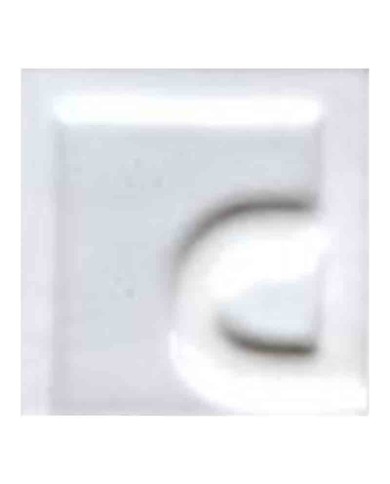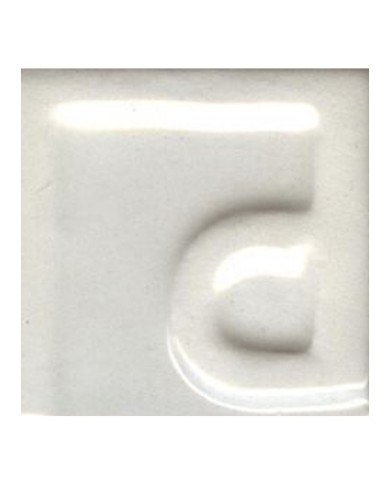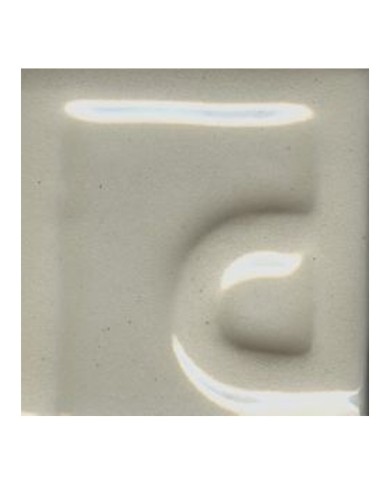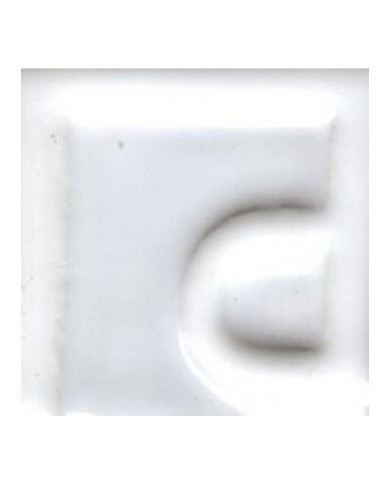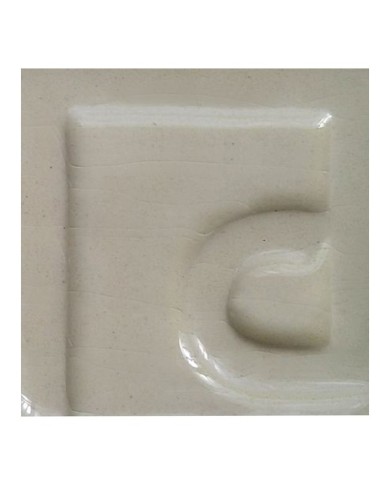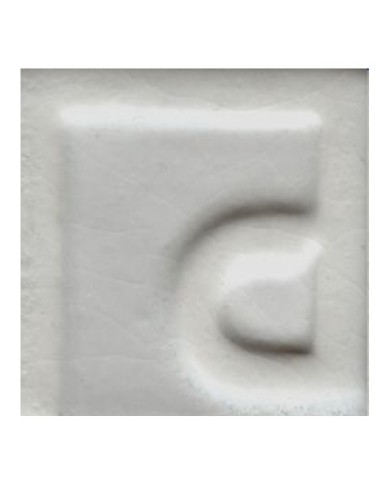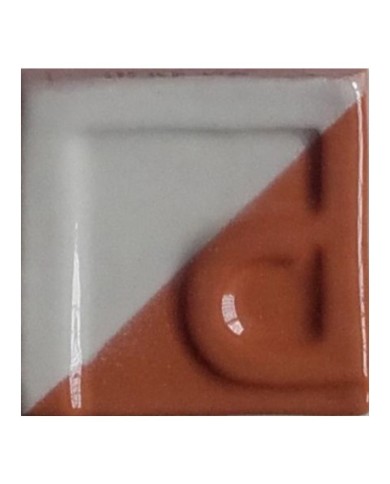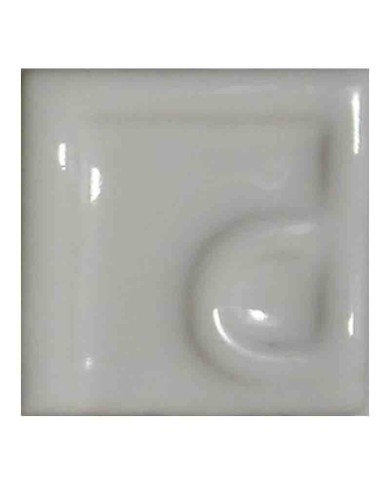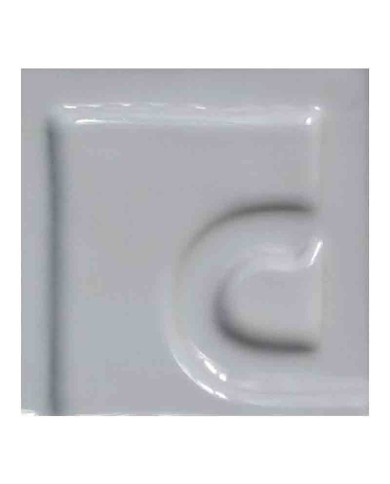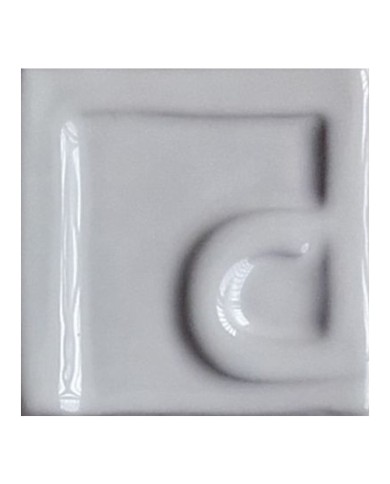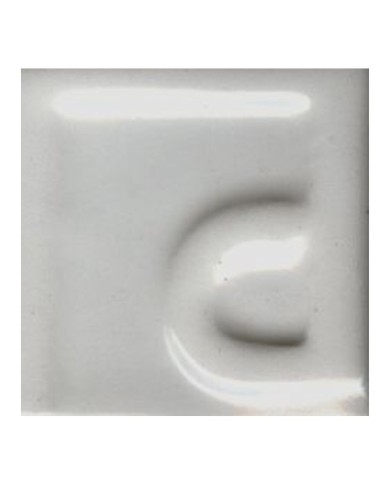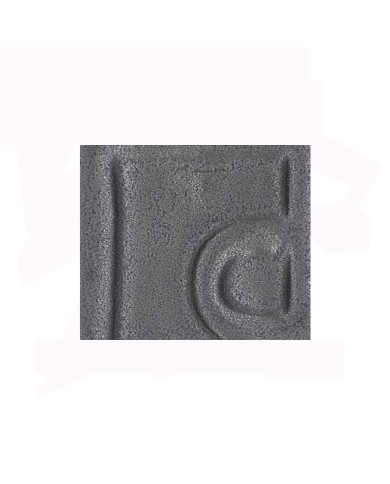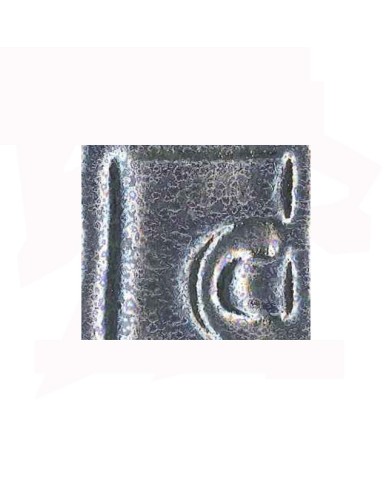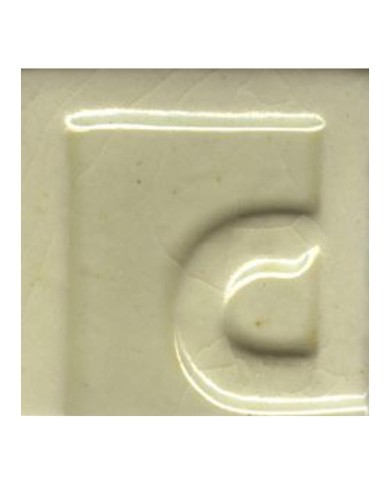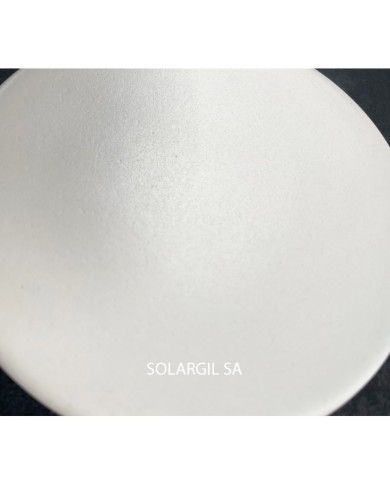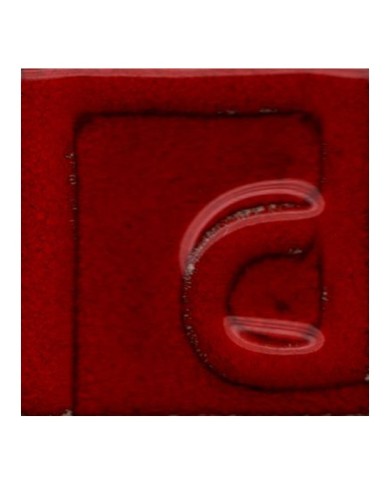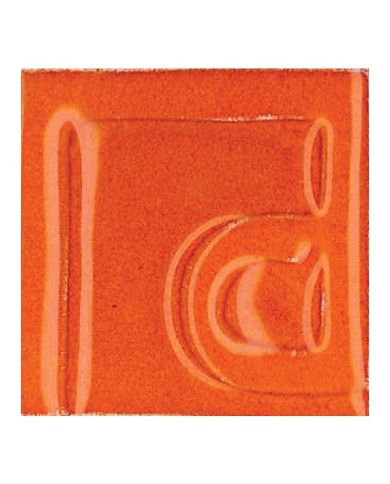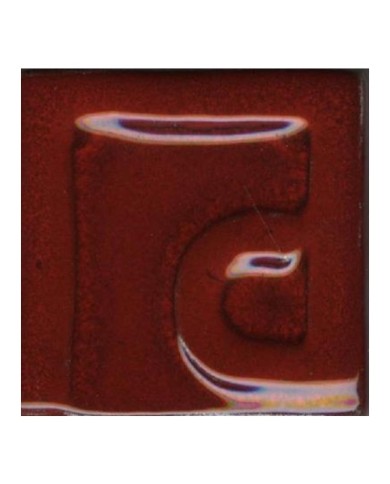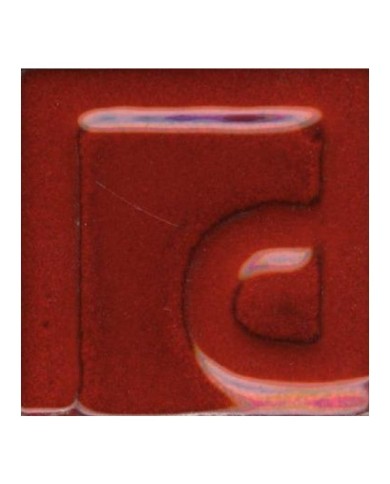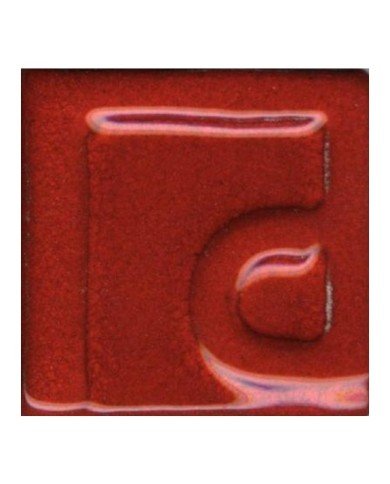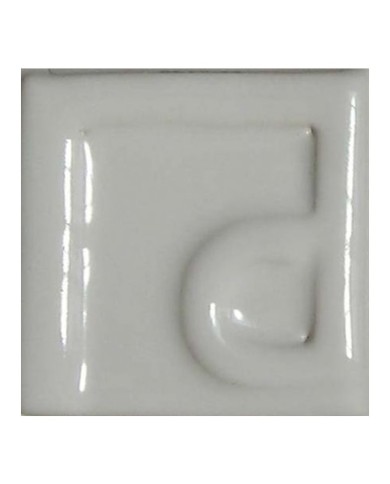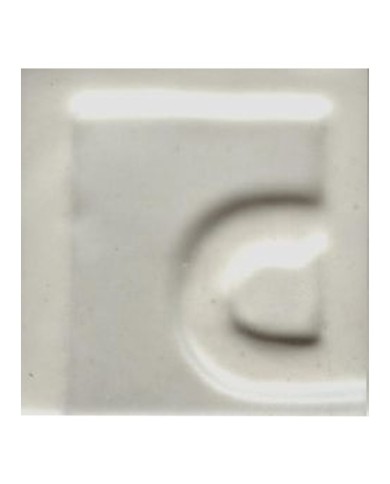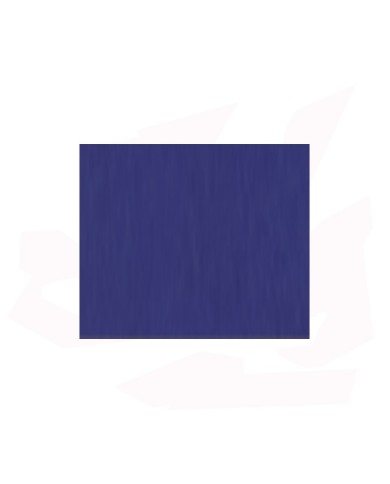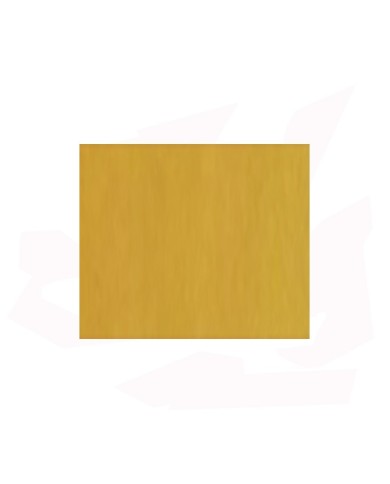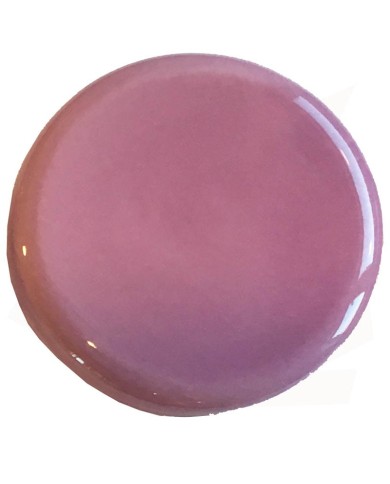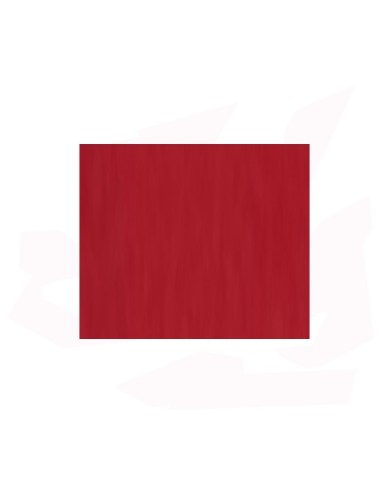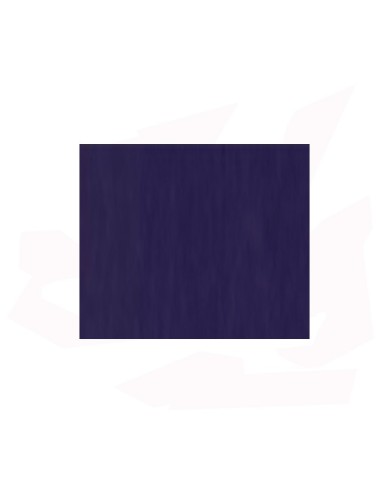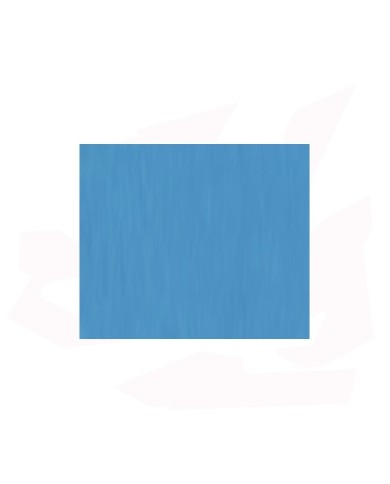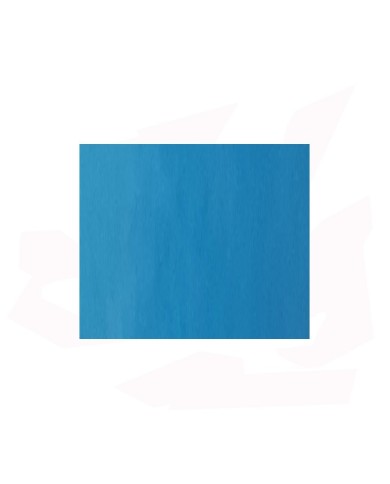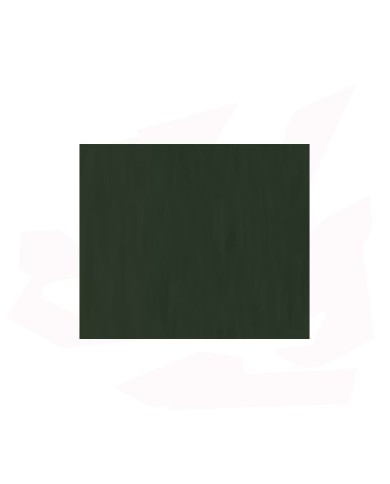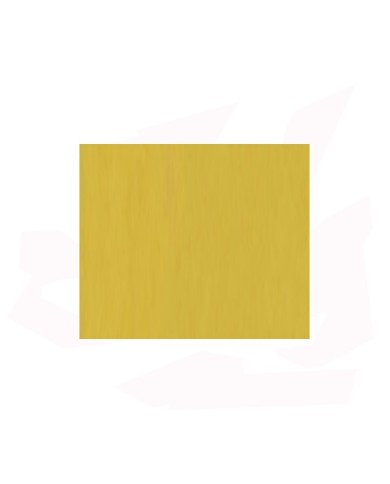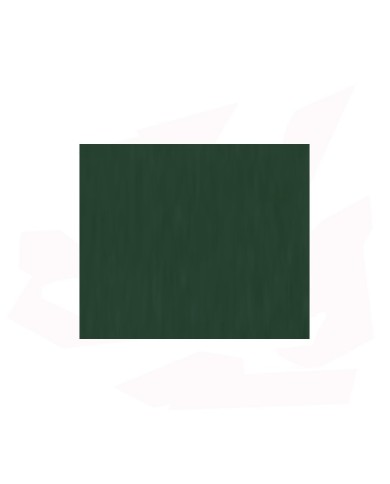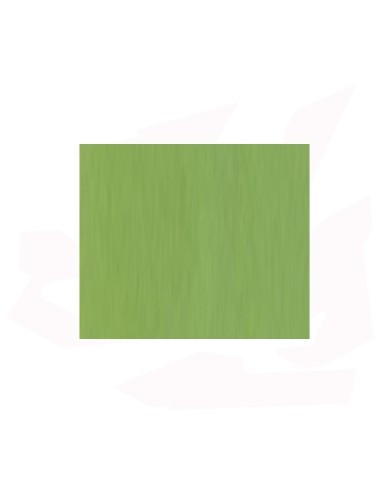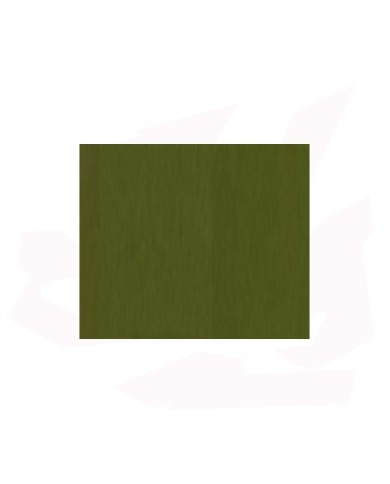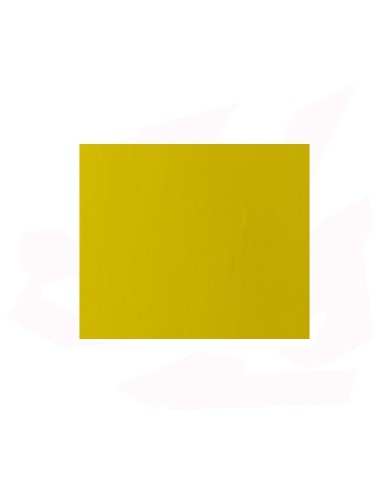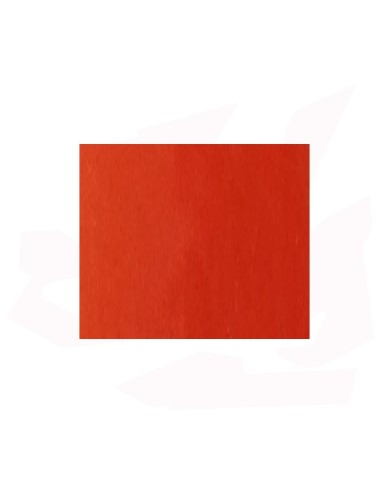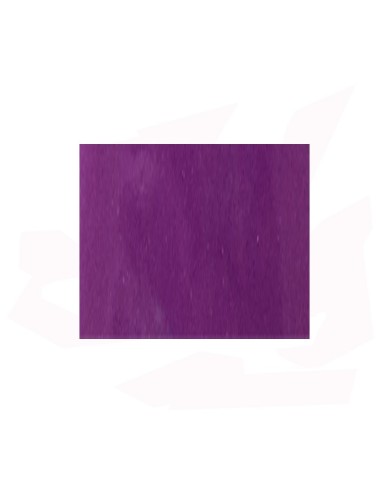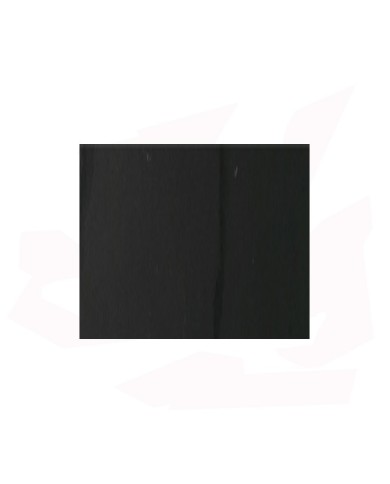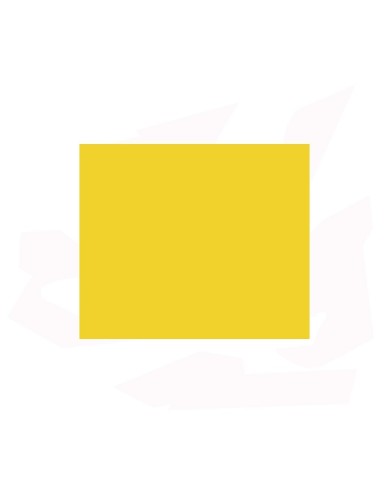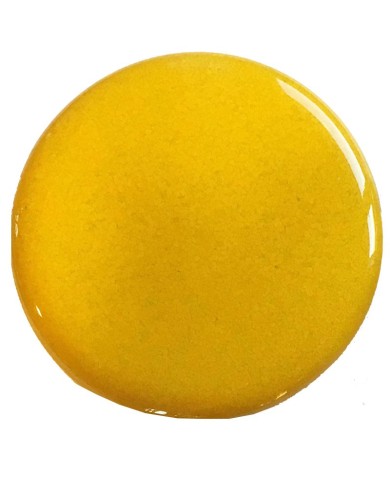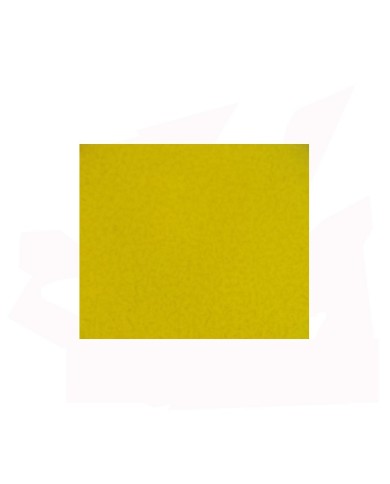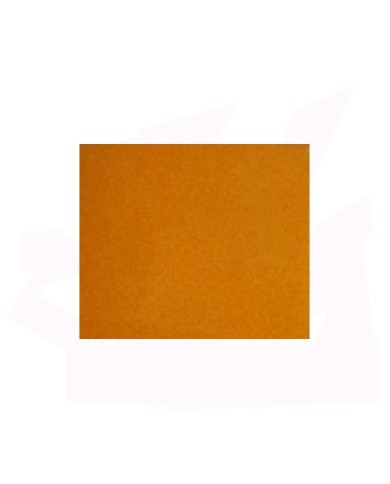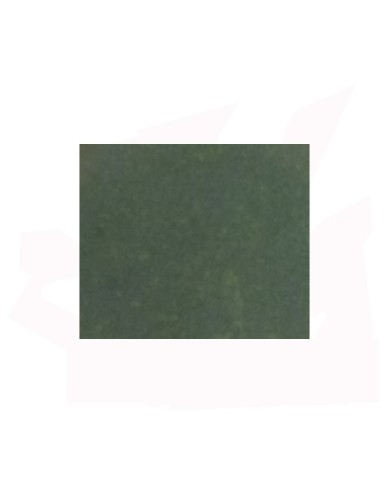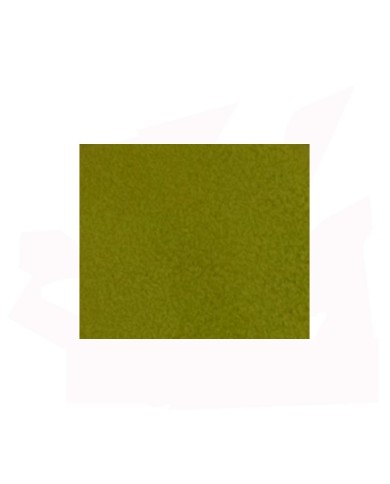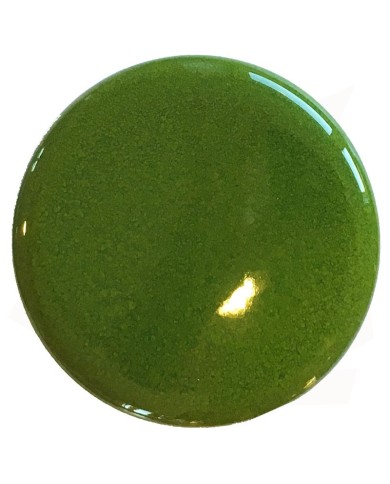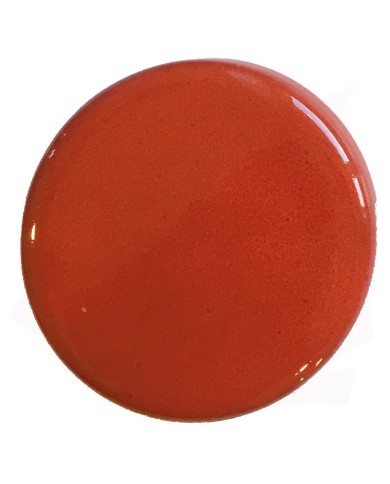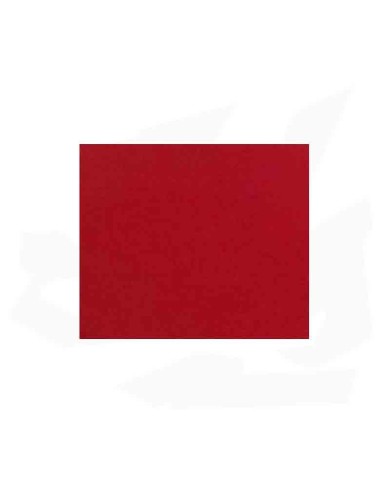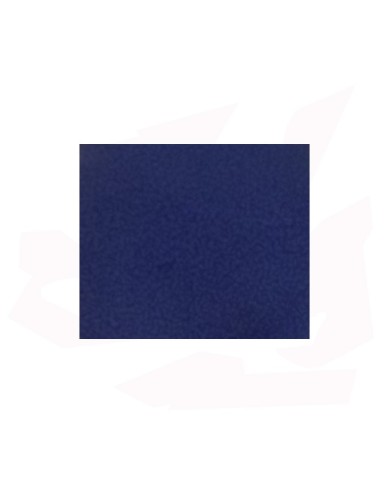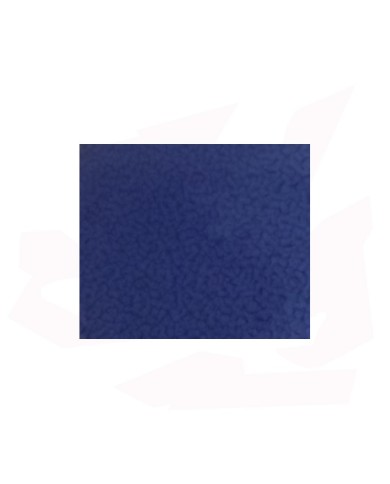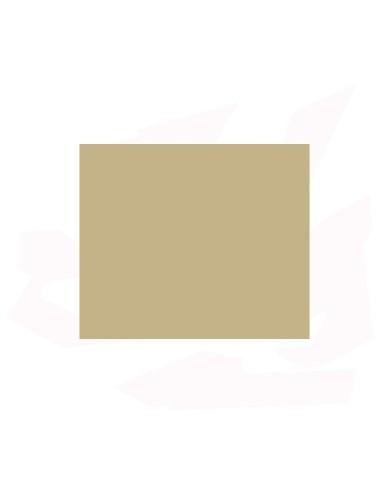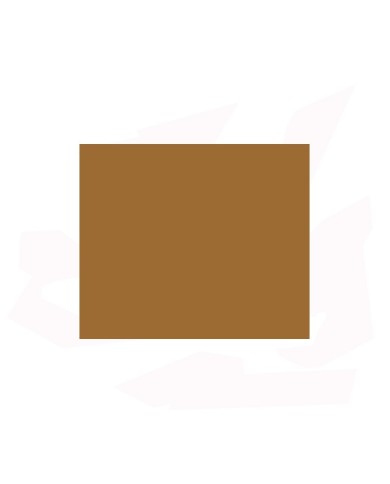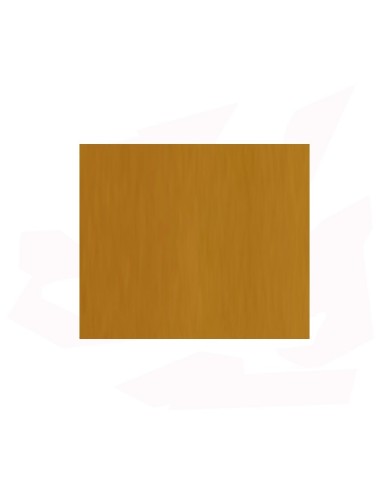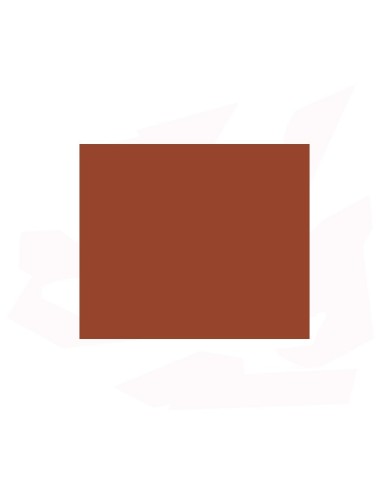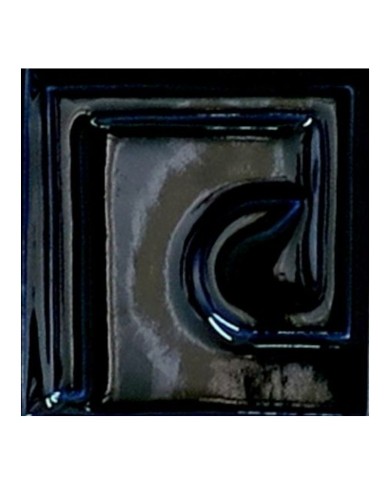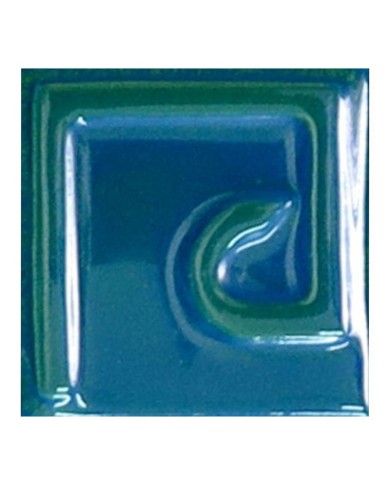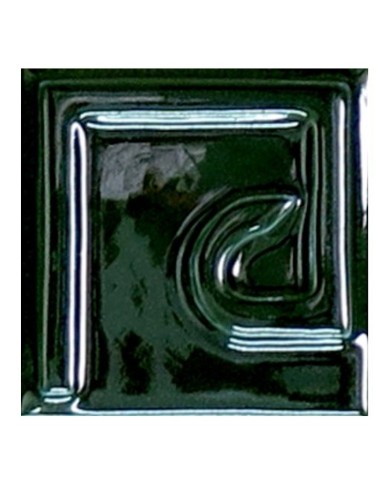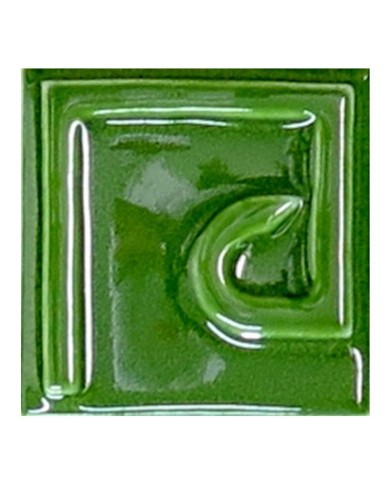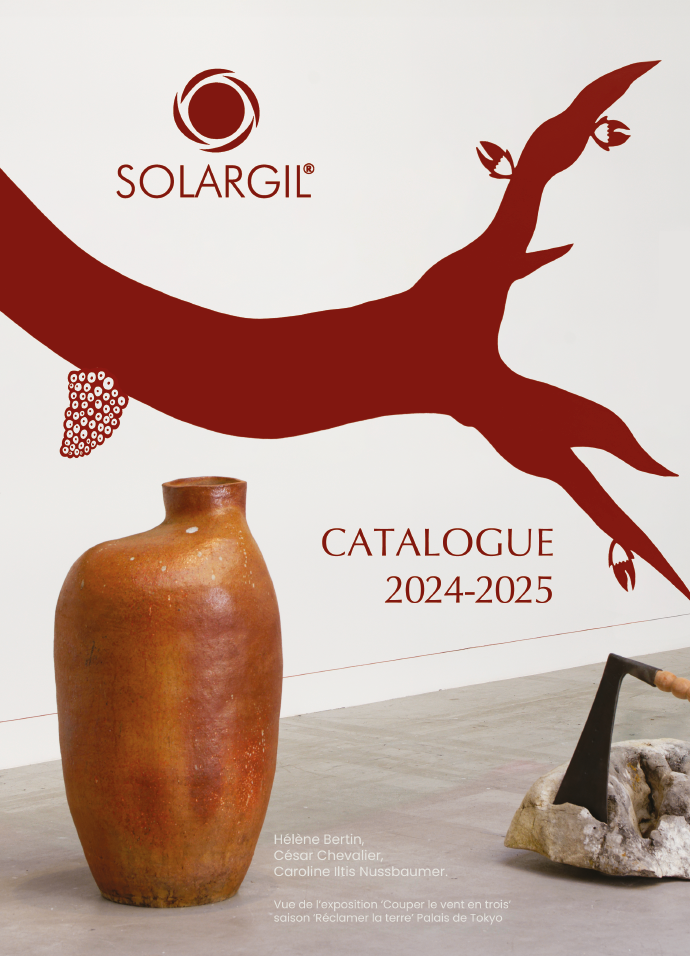Bright yellow XP3053
Free of lead
Temperature of firing : 980-1020°C
Coefficient of expansion: 55
Bright red XP3052/T
Free of lead
GROUPE I
Temperature of firing : 930-1050°C
Coefficient of expansion
Bright red XP3052
Free of lead
Temperature of firing : 980-1020°C
Coefficient of expansion: 55
Bright orange XP3051/T
Free of lead
GROUPE I
Temperature of firing : 930-1050°C
Coefficient of expansion: 55
Bright orange XP3051
Free of lead
Temperature of firing : 980-1020°C
Coefficient of expansion: 55
Bright oranged yellow XP3050/T
GROUPE I
Free of lead
Temperature of firing : 930-1050°C
Coefficient of expansion: 55
ENAMEL XP3050 BRIGHT ORANGE YELLOW OPAQUE LEAD FREE
Glaze Copper green XP3048
Groupe I
Firing temparature: 960-1050°C
Glaze Honey XP3043
Advice :
Temperature of firing : 930-980°C
Dilation coeff : 74
Mentions :
GROUPE I : Enamel without lead
Lead-free copper green enamel - XP 3025
For enamelling ceramic pieces in red clay or engobed.
Firing temperature between 980-1020°C.
Green - VR97
Groupe III
Firing temperature: 960-1050°C
Transparent glaze - TSP 2
Composed of Frit.
Clear crystalline lead free.
For enamelling ceramic parts.
Admits the addition of dyes with excellent color development.
Has a firing interval between 1020-1080ºC.
Antique ivory white enamel - SIGLO XVIII
Opaque white zircon enamel.
For the enameling of earthenware and tiles which one wants to obtain an "antique" aspect.
Admits decoration.
The firing temperature varies between 950-1000ºC.
Ivory white enamel - SIGLO XV
Opaque glossy white enamel.
This is an enamel studied to imitate antique white enamels which have a slightly yellowish (dirty white) tone.
We recommend using the special color series for decorating SIGLO XIII-type pieces.
Can be used indifferently on white and red paste.
The recommended firing temperature varies between 950-1000°C.
Crystallized brown S3A
Lustres glazer with lead
Temperature for firing : 850-990°C
Presence of lead. Use only for decorative products
Brown lustre glaze R1003
With lead
Firing temperature : 960-1020°C
Transparent glaze - PR O
Composed of Frit.
Transparent varnished which has been specially studied for pieces of pottery which must contain food.
It adapts correctly both to popular earthenware (red clay) in double firing, as in single firing, because in its formulation, products are included which favor its adhesion to the soil.
It admits the addition of coloring oxides and in particular the natural ones (Cu, Co, Mn, Fe, ....).
It perfectly develops both underglaze colors and our range of colored engobes.
The firing temperature varies between 930-980ºC. At temperatures above 970ºC, kaolin or clay should be added.
Transparent lead-free powder enamel - PR99
Composed of Fritte.
For enamelling of white earthenware.
We can decorate under and on enamel.
Obtaining coloured enamels by adding dyes from the "P" series.
Firing temperature between 1000 and 1100ºC.
Bright white zircon enamel - PR 6303 F
Composed of Frit.
Bright opaque white enamel, lead free. Recommended for parts for food use.
For the enameling of ceramic pieces in red or white earth, especially those which must contain food.
Can be colored with natural oxides or calcined type P series. If the room must contain food, use lead-free dyes. The application can be done with a bath, brush, spray gun or screen printing.
Firing temperature between 1000-1020ºC where the enamel shows its best development.
Transparent glaze - PR500
Composed of Fritte.
Shiny transparent enamel without lead.
For enamelling of ceramic pieces in red or white clay.
Firing temperature between 950-1020ºC.
Transparent glaze - PR 47
Composed of Frit.
Shiny transparent enamel with a high amount of calcium.
Recommended as a base for producing colored enamels with coloring oxides compounds based on calcium, such as for example the base of (Cr, Sn, Ca).
Rutile base when looking for a lead enamel with a high melting viscosity which must be used at a temperature above 1000º C.
The firing temperature varies between 980-1050ºC.
Melting to lower the firing temperature - PR 32
Composed of Frit.
LEAD FREE CLEAR MELTING ENAMEL.
For the enameling of ceramic pieces in red or white clay.
Lead free fondant to add to enamels that need to increase fusibility.
Optimal firing temperature between 850-900ºC.
Glossy transparent enamel - PR233
Composed of Frit.
Glossy transparent enamel, lead free.
For glazing ceramic pottery pieces in red or white clay.
Firing temperature, between 950-1020ºC.
Bright white zircon enamel - PR23
Composed of Frit.
It is an enamel specially designed for pottery and tiling.
Admits decoration well.
The firing temperature varies between 950-1000ºC.
Transparent glaze - PR 211 B
Composed of Frit.
The firing temperature varies between 980-1020ºC.
Lead-free opaque white satin enamel - PR20 (PR20/N)
The firing temperature varies between 980-1100ºC.
Satin transparent glaze - PR17
Composed of Frit.
Clear satin lead-free enamel.
The firing temperature varies between 980-1050ºC.
Calco-alkaline glaze - PR 1440 (FR 10)
Composed of fritte.
Lead-free transparent enamel with relatively high expansion.
Application Ceramic product for enamelling of white and red clay pieces with an expansion superior to the standard.
Admit to the decoration.
The firing interval is between 940 and 1000ºC.
Transparent boro calcium enamel - PR1430
Transparent and glossy enamel, lead-free.
Transparent expansion corrector enamel - PR14
It is a corrector, low dilatation.
Application Raw material in ceramics.
The use is very limited by its low expansion.
It can be added to certain enamels to reduce their dilatation.
Recommended firing temperature between 980-1050ºC.
Glossy white enamel - PR 125
Opaque white enamel.
For the enameling of ceramic pieces in white or red earth.
It can be applied both by dipping and spraying.
The recommended firing temperature is between 980-1000ºC.
White enamel for undercoat - PR 120 BB
Composed of Frit.
For glazed tiles on the bisqueware.
Then apply a thin layer of transparent enamel.
The firing temperature varies between 960-1000ºC.
Glossy white enamel - PR 115
Composed of Frit.
High gloss Opaque White enamel, low expansion.
Can be used with excellent results on tiles or red earthenware as well as white majolica.
The firing temperature varies between 1000-1080ºC.
Extra white zircon enamel - PR 112
Composed of Frit.
Lead-free Opaque White Enamel.
Slightly bluish white enamel, studied for food, decorative or sanitary ceramics by firing above 1100ºC, in single or double firing.
Recommended temperature, between 1050-1150ºC.
Transparent enamel - PR 1000 (FR 8)
Composed of frit.
Transparent, lead-free and very melting email.
Raw material in the ceramic industry.
This is a basis for the development of lead-free enamels.
Recommended firing temperature between 850-1000°C.
Mat white - PR08
With lead
Groupe II
Firing temperature: 980-1020°C
Coefficient of expansion: 58
WHITE IVORY ANTIC GLAZE - OPACANTIC
White ivory antique
Ref : OPACANTIC
Temperature of firing : 950-1050°C
Coeff Dilat 25-300°C: 62
Groupe II
With lead
Transparent glaze - NS20M
Composed of Frit.
Lead-free shiny transparent enamel.
For enamelling ceramic pieces in white clay.
Firing temperature between 980-1020ºC.
Black- N3320M/7 dur
GROUPE III
Firing temperature: 980-990°C
Mono lead silicate enamel - MONOPB
Composed of Frit.
Transparent, shiny and melting enamel.
With lead.
Cadmium garnet red enamel - M 7516
Red enamel of cadmium and selenium.
For glazing red or white earthenware.
The application can be carried out by bathing or spraying.
The recommended firing temperature varies between 960-1050°C.
Dark orange cadmium and selenium enamel - M7513
For glazing red or white earthenware.
The application can be carried out by bath or by spraying.
The recommended firing temperature varies between 960-1020°C.
Deep red M7510
Cadmium glaze with lead
Temperature of firing 960-1020°C
Opaque red cadmium enamel - M 7508
For enamelling ceramic pieces in red or white clay.
Firing temperature between 960-980ºC.
Red cadmium enamel - M7506
Intense red, opaque and shiny enamel.
For the enameling of ceramic pieces in red or white clay.
You can enamel by dipping or with a gun.
Recommended firing temperature between 960-1000ºC.
Glossy white enamel - M 5148
Composed of Frit.
Zircon Opaque White Enamel, lead free, which makes it suitable for all kinds of edible pottery.
Admits decoration very well. We recommend the use of lead-free pigments when the room to be decorated must contain food.
The firing temperature varies between 960-980ºC.
Matte transparent enamel - G 1005
Composed of Frit.
Transparent satin zinc and lead enamel.
Can be easily colored.
One must take into account the fact that zinc oxide can be bad to develop certain oxides dyes.
We recommend applying it for white paste and thin layer to avoid opalescences.
The firing temperature varies between 950-1000ºC.
Cobalt blue - ES919
Temperature of firing : 950-1050°C
Groupe I
Without lead
SHINY TRANSPARENTGLAZE ES915
Shiny transparent
Ref : ES915
Yellow - ES8870
Temperature of firing : 950-1050°C
Groupe II
With lead
Purple transparent with lead glaze ES8848
Firing temperature : 960-1040°C
Red tomatoe - ES8647
Temperature of firing : 960-1040°C
Groupe II
With lead
Cobalt blue - ES850
Temperature of firing : 950-1050°C
Groupe I
Without lead
Transparent crackled glaze ES85
With lead
Firing temperature : 940-980°C
PERIWINKLE BLUE - ES8060
Temperature of firing : 960-1040°C
Groupe I
Without lead
Intense blue sky - ES8057
Temperature of firing : 950-1050°C
Groupe I
Without lead
Shiny transparent glaze - ES805
Shiny white - ES798
Temperature of firing : 950-1050°C
Coeff dilat 25-300°C: 62
Groupe II
With lead
Shiny white - ES797
Temperature of firing : 950-1050°C
Coeff dilat 25-300°C: 62
Groupe I
Without lead
Dark green- ES7856
Temperature of firing : 980-1080°C
Groupe I
Without lead
Yellow - ES767
Temperature of firing : 960-980°C
Groupe I
Dark green - ES722/38
Temperature of firing : 960-1040°C
Groupe I
Without lead
Green pistachio- ES7201
Temperature of firing : 960-1040°C
Groupe I
Without lead
Matt white - ES600
Temperature of firing : 950-1050°C
Coeff Dilat 25-300°C: 72
Groupe I
Without lead
Green- ES580
Temperature of firing : 980-1080°C
Groupe II
With lead
Yellow- ES575
Temperature of firing : 980-1000°C
Groupe II
With lead
Orange- ES572
Temperature of firing : 950-1050°C
Groupe II
With lead
Transparent Glaze - ES569
Lilac - ES546
Temperature of firing : 960-1040°C
Groupe II
With lead
Shiny transparent glaze - ES510/FR
Green transparent - ES418
Temperature of firing : 960-1040°C
Groupe III
With lead
Dark orange - ES279
Temperature of firing : 950-1050°C
Groupe III
With lead
Yellow sun - ES275
Temperature of firing : 950-1050°C
Groupe III
With lead
Orange - ES274
Temperature of firing : 950-1050°C
Groupe III
With lead
Middle green- ES265
Temperature of firing : 950-1050°C
Groupe III
With lead
Clear green- ES263
Temperature of firing : 950-1050°C
Groupe III
With lead
Cadmium intense green glaze ES261
With lead
Firing temperature : 950-1050°C
Red cadmium with lead glaze ES259
Firing temperature : 950-1050°C
Red cadmium - ES253
Temperature of firing : 950-1050°C
Groupe III
With lead
Dark blue - ES244
Temperature of firing : 950-1050°C
Groupe III
With lead
Blue - ES243
Temperature of firing : 950-1050°C
Groupe III
With lead
Matt transparent glaze - ES1600
Temperature of firing : 850-1050°C
Coeff dilat 25-300°C: 65
Groupe II
With lead
SATINY LEATHER OPAC EFFECTS GLAZE : ES142
Satiny leather - ES142
Temperature of firing : 950-1050°C
Groupe I
Without lead
Black matt - ES139
Temperature of firing : 950-1050°C
Groupe I
Without lead
Satiny leather
Ref : ES107
Temperature of firing : 950-1050°C
Groupe III
With lead
Honey transparent - ES1048
Temperature of firing : 950-1050°C
Groupe II
With lead
Leather marbled - ES102
Temperature of firing : 950-1050°C
Groupe III
With lead
Silver glazed - ES1000
Temperature of firing : 950-1050°C
Groupe III
With lead
Lead free ink black cadmium enamel - EECS 13
Cadmium selenium effect.
Series of colored lead-free enamels of great intensity with a specific formulation.
They can be applied on any type of paste, white or red.
Suitable for decorating culinary pieces.
The application can be done by dipping, spraying or with a pear.
The recommended firing temperature is 980-1080°C.
It is recommended to fire these products at the appropriate temperature with a slow cycle, (> 5 h), and making a level at the end of firing.
High coefficient of expansion to be taken into account in order to avoid cracking.
These enamels require a thick coat.
Lead teal green cadmium enamel - EECS 12
Cadmium selenium effect.
Series of colored lead-free enamels of great intensity with a specific formulation.
They can be applied on any type of paste, white or red.
Suitable for decorating culinary pieces.
The application can be done by dipping, spraying or with a pear.
The recommended firing temperature is 980-1080°C.
It is recommended to fire these products at the appropriate temperature with a slow cycle, (> 5 h), and making a level at the end of firing.
High coefficient of expansion to be taken into account in order to avoid cracking.
These enamels require a thick coat.
Lead free spinach green cadmium enamel - EECS 11
Cadmium selenium effect.
Series of colored lead-free enamels of great intensity with a specific formulation.
They can be applied on any type of paste, white or red.
Suitable for decorating culinary pieces.
The application can be done by dipping, spraying or with a pear.
The recommended firing temperature is 980-1080°C.
It is recommended to fire these products at the appropriate temperature with a slow cycle, (> 5 h), and making a level at the end of firing.
High coefficient of expansion to be taken into account in order to avoid cracking.
These enamels require a thick coat.
Lead free avocado green cadmium enamel - EECS 10
Cadmium selenium effect.
Series of colored lead-free enamels of great intensity with a specific formulation.
They can be applied on any type of paste, white or red.
Suitable for decorating culinary pieces.
The application can be done by dipping, spraying or with a pear.
The recommended firing temperature is 980-1080°C.
It is recommended to fire these products at the appropriate temperature with a slow cycle, (> 5 h), and making a level at the end of firing.
High coefficient of expansion to be taken into account in order to avoid cracking.
These enamels require a thick coat.

